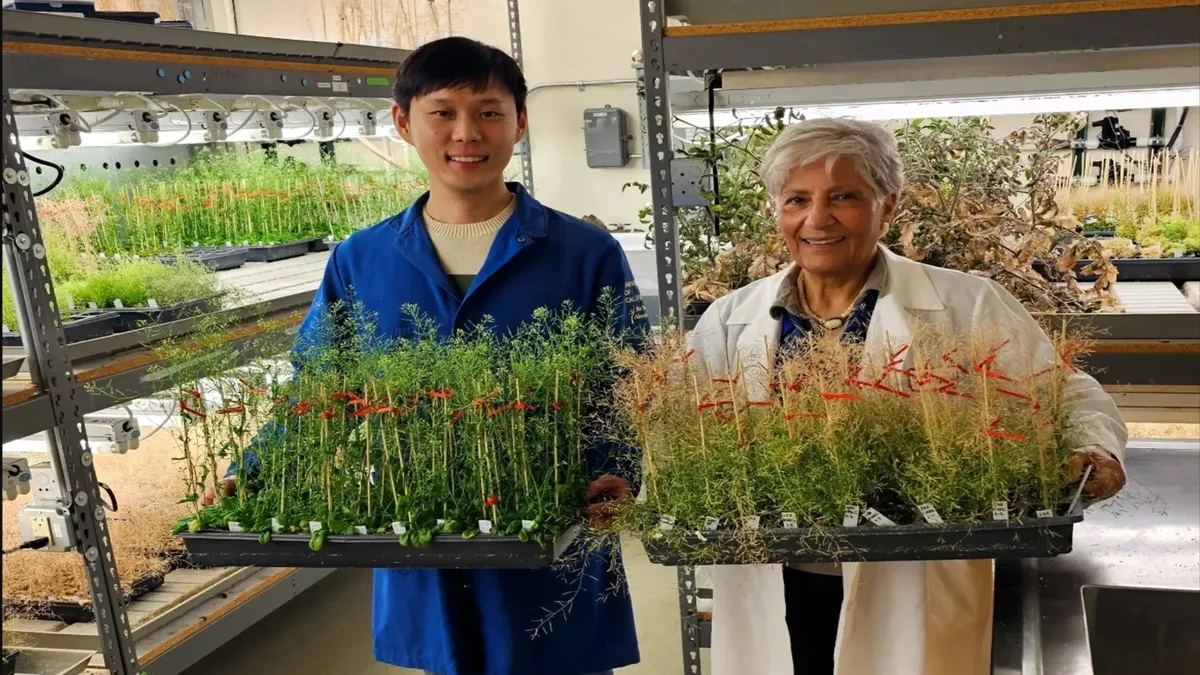Scientists at the University of California Riverside have made a groundbreaking discovery linking a plant cell organelle, the Golgi apparatus, to the aging process. This unexpected finding reveals the crucial role of an understudied protein, COG, within this organelle. The research not only advances our understanding of plant aging but also holds significant implications for unraveling the mysteries of aging in humans. This article explores the key findings, implications, and potential avenues for anti-aging interventions.

Plants Hold the Key to Defying Aging
In a surprising turn of events, researchers at the University of California Riverside have uncovered a hidden link between plant cells and the aging process. The key player in this revelation is the Golgi apparatus, a cellular organelle known for over a century but largely overlooked in aging research.
The Golgi Apparatus: Nature’s Post Office
Described humorously as resembling deflated balloons or dropped lasagna, the Golgi apparatus plays a crucial role in processing and packaging proteins and lipids within plant and animal cells. Lead author Heeseung Choi likens it to the post office of the cell, responsible for packaging and sending out essential molecules to where they are needed.
COG Protein: The Cellular Postal Worker
At the heart of this discovery is the COG protein, a molecular worker that manages the movement of small sac ‘envelopes’ within the Golgi apparatus. These sacs transport vital molecules around the cell, ensuring proper cellular function. Additionally, the COG protein facilitates glycosylation, a critical process for various biological functions, including immune response.
Unraveling Aging Secrets: The Experimental Journey
The research team modified plants to lack the COG protein, observing their growth under normal conditions and the accelerated aging symptoms when deprived of light. The COG-less plants exhibited signs of aging three times faster than their unmodified counterparts. However, reinstating the COG protein reversed the aging symptoms, highlighting its crucial role in stress management.

Implications for Human Aging: Bridging the Gap
While the study focused on plant cells, the implications for human aging are significant. The Golgi apparatus and COG protein are not exclusive to plants but exist in all eukaryotic organisms, including humans. Malfunctions in these cellular components have been linked to the proliferation of cancer cells and disease progression.
The Path Forward: Anti-Aging Potential
The unexpected connection between the Golgi apparatus, COG protein, and aging opens new avenues for research on age-related diseases in humans. The researchers are now planning to investigate the impact of disrupting this pathway in human cells, paving the way for targeted therapies that could enhance cell health and protect against premature aging.
Conclusion: A Paradigm Shift in Aging Research
This groundbreaking discovery challenges conventional views on aging, introducing plant organelles as key influencers in the aging process. As researchers delve into the intricate molecular mechanisms, the potential for innovative interventions and anti-aging strategies becomes increasingly apparent. The Golgi apparatus, once a overlooked cellular structure, emerges as a pivotal player in the quest to unlock the secrets of aging.
References:
- University of California, Riverside – Keys to aging hidden in the leaves
- National Center for Biotechnology Information – Factors influencing the aging process
